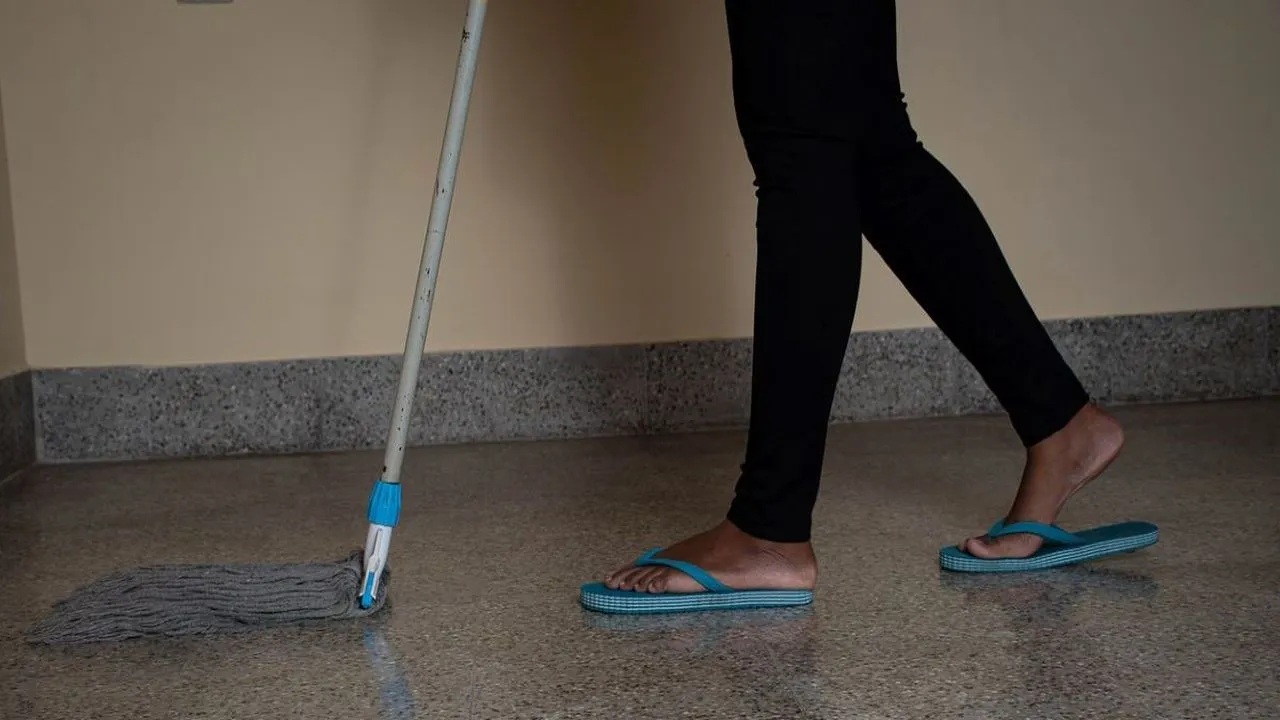The Bill aims to provide domestic workers the right to decent working conditions, social security and welfare and also regulate employment conditions, ensuring minimum wages.
Published Oct 17, 2025 | 5:44 PM ⚊ Updated Oct 17, 2025 | 5:44 PM

According to the draft of the Karnataka Domestic Workers (Social Security and Welfare) Bill, 2025, all domestic workers employed within the state, service providers, and employers must register with the authorities.
Synopsis: The draft bill provides for the constitution of the Karnataka State Domestic Workers Social Security and Welfare Board. This will administer and monitor the Domestic Workers Social Security and Welfare Fund, and advise the government on matters related to the effective implementation of the Act.
The draft Karnataka Domestic Workers (Social Security and Welfare) Bill, 2025, released on 15 October, is likely to revolutionise the lives of domestic workers in the state.
The Bill aims to provide domestic workers the right to decent working conditions, social security and welfare and also regulate employment conditions, ensuring minimum wages.
It will cover all domestic workers under the metropolitan and municipal councils and recruitment agencies. It will apply to service providers, including platforms based out of Karnataka that provide domestic and other care workers in the state.
The Bill defined ‘domestic work” as work performed by a domestic worker either for a single household or multiple households involving one or more employers or agencies.
It mentions that, “No domestic workers shall be employed without an agreement in writing entered into between the employer and the worker.”
Furthermore, it states that the agreement shall follow minimum labour standards laid down in the model employment agreement and that the agreement shall specify the name and other particulars, nature of work assigned to the worker, hours of work, wages and other benefits to which the worker is entitled.
Employers, service providers, or agencies violating the provisions could face up to three months’ imprisonment and fines, according to the draft. Citizens have a month to submit suggestions or objections on the draft.
The draft bill provides for the constitution of the Karnataka State Domestic Workers Social Security and Welfare Board. This will administer and monitor the Domestic Workers Social Security and Welfare Fund, and advise the government on matters related to the effective implementation of the Act.
Registration fees collected from domestic workers, employers, service providers, placement agencies, including digital platforms, and up to 5 percent of the welfare fee collected periodically, will form the fund.
Under Rights of the Domestic Workers, the Act states that every domestic worker shall have the right to:
(a) Be eligible for registration as beneficiaries under the act as may be prescribed,
(b) Work and earn a livelihood, which is free from all forms of forced or compulsory labour
(c) Earn minimum wages, as fixed under the Minimum Wages Act, 1948, and be eligible for overtime payment for hours of overtime performed with a single employer.
(d) Be eligible for reasonable working hours, periods of rest, annual paid leave and maternity benefit, which shall be extended by the state board.
(e) Be eligible for social security schemes and other welfare benefits that are extended by the state board upon registration.
(f) Be eligible for redressal of grievances through an appropriate mechanism as may be prescribed.
(g) Be eligible for any up-skilling and other training programmes that are scheduled by the state government in partnership with training agencies.
The Bill also deals with their working conditions.
(1) The state government may in consultation with the Board, may:
(a) Fix the minimum rate of wages payable to the domestic workers by their employer and revise the wages periodically. Provided that there shall be no discrimination in the rates of wages paid to men and women, and adolescent workers.
(2) Fix the number of hours of work which shall constitute a normal working day, inclusive of one or more specified intervals.
Provided that working hours shall not exceed 48 hours a week.
(3) Provide for one full-day holiday or a staggered half-day holiday twice a week.
(4) Shall formulate a policy either on its own or make applicable the provisions of the Employees’ Compensation Act, 1923, for compensation for any accidental fatal or non-fatal accidents or injury caused to the domestic worker at the workplace.
(5) Shall formulate social security and other welfare benefits from the welfare fund so created for the benefit of the domestic worker and his/her family.
In the penal provisions provided in the Bill, if any person knowingly sends, directs or takes any girl or women/domestic worker to any place for immoral purposes or to a place where she is likely to be morally corrupted or, in any manner sexually exploits or indulges in trafficking of such domestic worker or child or, if found ill treating or discriminating any domestic worker based on caste, sex, class, race, religion or region or, in any manner abuses or illegally confines any domestic worker ог, compels any domestic worker to render any forced labour or, provides any child as domestic worker, shall be subjected to imprisonment for not less than three years and which may extend up to a period of seven years and fine up to ₹50,000.
(Edited by Majnu Babu).
